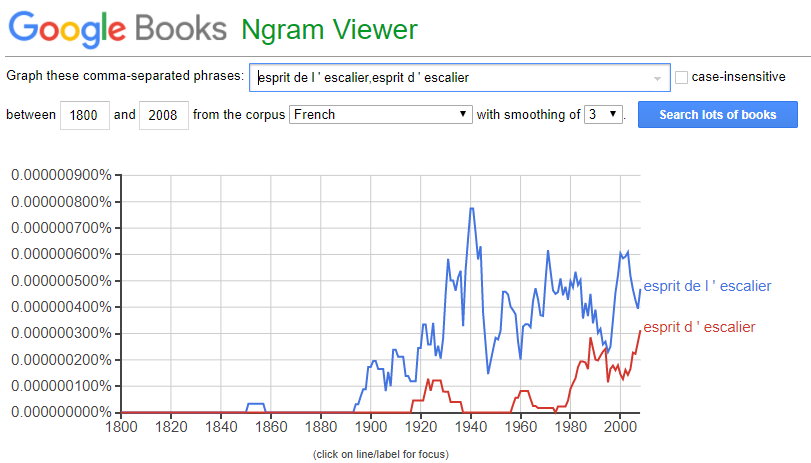English wikipedia lists two variations right from the beginning: l'esprit de l'escalier and l'esprit d'escalier.
I understand that the full(er) phrase, avoir l'esprit de l'escalier, is attributed to Denis Diderot, and reads/sounds like the most formal.
On the other hand, the Oxford dictionary lists simply esprit de l'escalier; and it seems that an even briefer esprit d'escalier is passable.
"The spirit of the stairways" is such a great expression, and I would love to better understand the distinctions in usage. (Is it mostly formal vs. casual?)
Merci!

